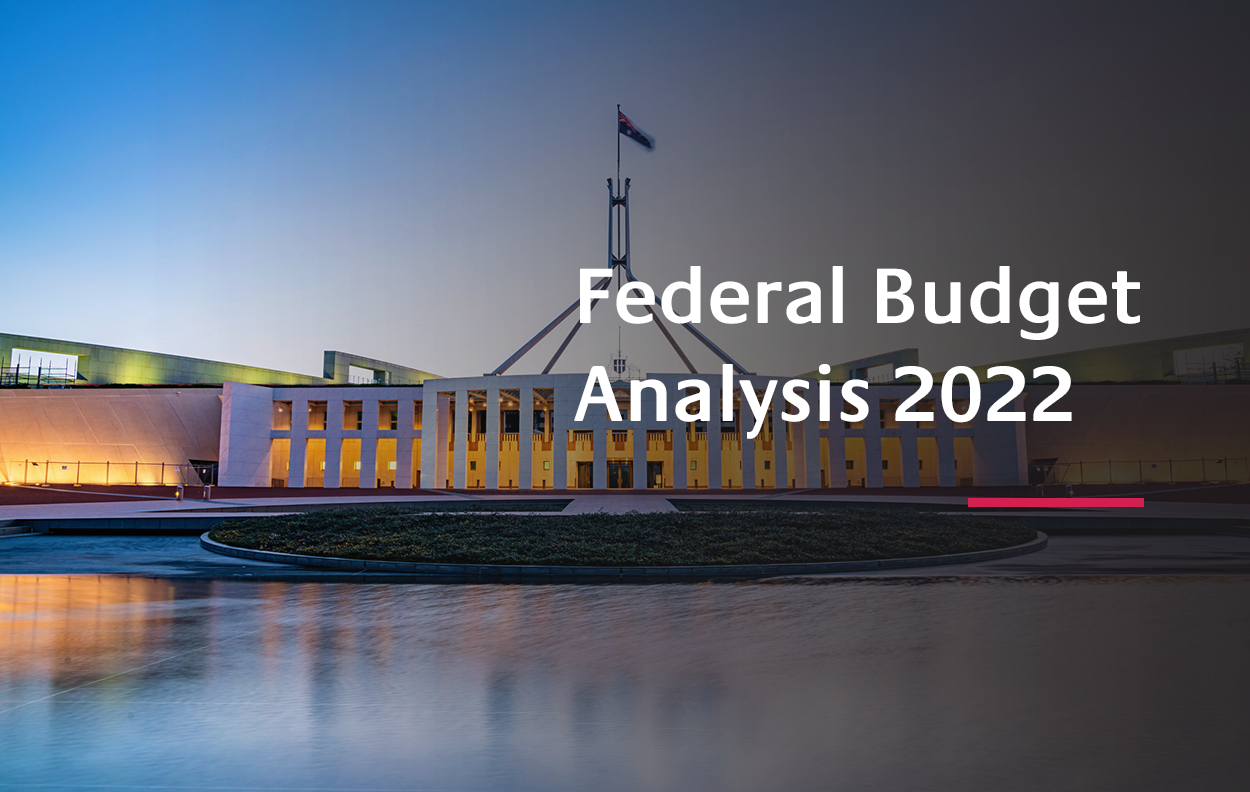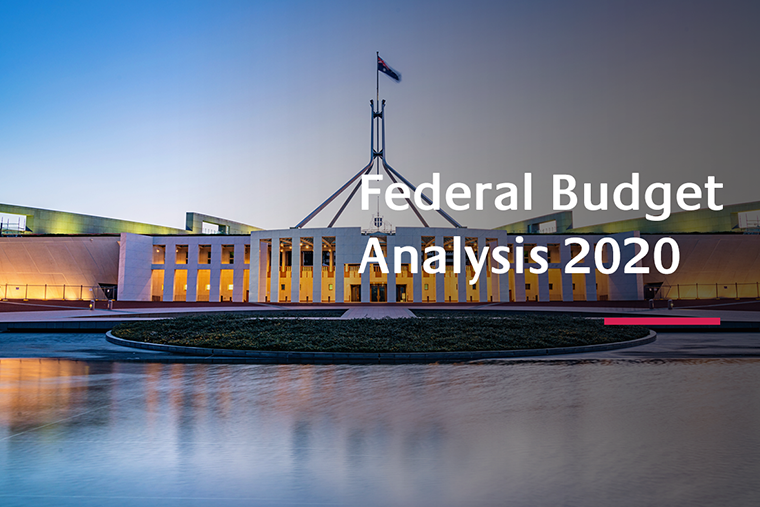In handing down his fourth Federal Budget, the Treasurer, Josh Frydenberg reminded us that we are living in uncertain times and commended the Australian people for remaining resilient and strong. This Government’s budget is a plan for the times.
A summary of the key tax announcements include a temporary and targeted cost of living package, an enhanced 120% tax deduction for small business spending on skills and technology and an extension of the Patent Box which is aimed at boosting innovation.
The tax team at Prosperity have pulled together the main highlights:
Businesses
Technology investment boost for small businesses
The Government is introducing a technology investment boost that will apply to eligible expenditure incurred from 7:30pm, 29 March 2022 to 30 June 2023.
Small businesses (that is businesses with an aggregated annual turnover of less than $50M) will be able to deduct an additional 20% of the cost incurred on business expenses and depreciating assets that support digital adoption, such as portable payment devices, eInvoicing, web design, cyber security systems or subscriptions to cloud-based services. As online business grows and evolves, so does the risk of being overtaken by global competitors with better technology and better infrastructure. This measure is intended to level the playing field.
An annual cap will apply up to $100,000, meaning that a maximum spend of $100,000 will entitle a small business to a $120,000 deduction.
The benefit derived is not immediate, as the boost for eligible expenditure incurred by the end of the 2022 financial year can be claimed in the 2023 financial year, while the boost for eligible expenditure incurred during the 2023 financial year can be deducted in that year.
Skills and Training Boost for small businesses
The Government is introducing a skills and training boost to assist small businesses in the training and upskilling of their employees. This boost will apply to relevant expenditure incurred from 7:30pm, 29 March 2022 to 30 June 2024.
Small businesses (that is businesses with an aggregated annual turnover of less than $50M) will be able to deduct an additional 20% of expenditure incurred on external training courses provided to their employees. Meaning that for every $100 spend on eligible expenditure, small businesses will be entitled to a $120 tax deduction. These external training courses will need to be provided to employees in Australia or online, and delivered by entities registered in Australia.
However, exclusions will apply to in-house or on-the-job training and on external training courses provided for persons other than employees.
The benefit derived is not immediate, as the boost for eligible expenditure incurred by the end of the 2022 financial year will be claimed in tax returns for the 2023 financial year, and the boost for eligible expenditure incurred between for the 2023 and 2024 financial years, will be included in the financial year in which the expenditure is incurred.
Apprenticeship and training
The Government has announced they will extend the Boosting Apprenticeship Commencement wage subsidy to the end of 2022 financial year, allowing businesses in high-demand industries who takes on an apprentice or trainee by 30 June 2022 to be eligible for up to $15,000 of wage subsidy over the next three years. This is expected to benefit businesses that rely on apprentices and trainees such as those in the hospitality and manufacturing industries.
Trainees in priority industries will also receive a $5,000 cash payment towards training costs, paid over four six-monthly instalments.
The Opposition has instead proposed an expansion of funding of fee-free TAFE places in areas of skills shortage if it wins the election in May.
Patent Box (R&D) expansion
The Government has announced it will expand the Patent Box Regime to include R&D in low-emissions technologies (“cleantech”) and agriculture to encourage new investments in these areas to boost clean energy. The benefit of making use of the Patent Box regime is to achieve a concessional tax rate on income streams attributable to the patent. The solar and renewables industries are expected to be winners of this announcement.
Investment in the Hunter region
As part of the Government’s announced $7.1 billion investment in the regions, $750 million will be allocated for projects in the Hunter region through expansion into new export industries while continuing to support traditional industries.
Employee Share Schemes
Access to employee share schemes will be expanded to encourage employers to reward employees with a share in equity in the companies that they help grow.
Where certain conditions are met, participants will be able to invest up to:
- $30,000 per participant per year, accruable for unexercised options for up to 5 years, plus 70 per cent of dividends and cash bonuses; or
- any amount, if it would allow them to immediately take advantage of a planned sale or listing of the company to sell their purchased interests at a profit.
Equity can be a flexible and valuable way to reward employees in a business and the expansion of schemes is welcomed.
Extension - ATO Avoidance Taskforce on multinationals, large corporates, and high wealth individuals
The ATO will receive almost $700m of funding to extend the operation of the Tax Avoidance Taskforce by two years to 30 June 2025. This is expected to bring in over $2bn of additional tax receipts.
Modernisation of pay as you go (PAYG) instalment systems
As a measure to support business cash flow by ensuring instalments reflect current performance, from 1 January 2024, companies can choose to have their pay as you go (PAYG) instalments calculated based on current financial performance, extracted from business accounting software, with some tax adjustments. This measure is subject to the necessary systems being in place.
Family and Individuals
$250 one off payment for eligible Australians
$1.5 billion total spend to provide a one-off $250 payment to eligible participants in April 2022. This includes: Age pension, Disability support pension, Parenting payment, Carer payment, Carer allowance, Jobseeker payment, Youth allowance, Austudy and Abstudy living allowance, Double orphan pension, Special benefit, Farm household allowance, Pensioner Concession Card (PCC) holders, Commonwealth Seniors Health Card holders and eligible Veteran’s affairs payment recipients and Veteran Gold card holders.
This payment will be exempt from income tax and will not count as income support for the purposes of any income support payment. A person can only receive one payment, even if they’re eligible under two or more categories. This payment is only available to Australian residents.
Increase of the LMITO by $420 for the 2021-22 income year
All low and middle income tax offset (LMITO) recipients will benefit from a $420 increase to their LMITO entitlement in 2021-22. The maximum benefit will be increased to $1,500 for individuals and $3,000 for couples.
Other than those that don’t require the full offset to reduce their tax liability to zero, all LMITO recipients will benefit from a $420 increase. All other features of the current LMITO remain unchanged, meaning the income bracket to receive an LMITO benefit remains $37,001 - $126,000.
The LMITO will be phased out after 30 June 2022.
Temporary fuel excise relief
Effective from midnight 29 March 2022, the fuel excise (currently 44.2c/L) will be halved for a period of six months. This represents an immediate saving of around 22c/L of fuel and will benefit families and businesses. For transport businesses, this will have a significant impact to reduce operating costs. If you have a transport business, there is also the existing fuel tax credit that you may be eligible for.
Additional paid parental leave
The Government has announced a single Parental Leave Pay to replace the existing two different payments for mums and dads and combining it to a total of 20 weeks. This means Parental Leave can now be accessed by either parent. Single parents will be able to access the full 20 weeks of leave. The household income threshold is adjusted to $350,000 a year and the new scheme is expected to be in place by March 2023.
Tax deductibility of COVID-19 test expenses
The cost of taking a COVID-19 test to attend a place of work will be tax deductible for individuals from 1 July 2021. This is further to the previous announcement that providing COVID-19 Rapid Antigen Tests (RATs) to employees would be tax deductible to the business and exempt from FBT.
To view our extensive Federal Budget overview, click here.
To view our Tax & Superannuation Federal Budget Report, click here.


